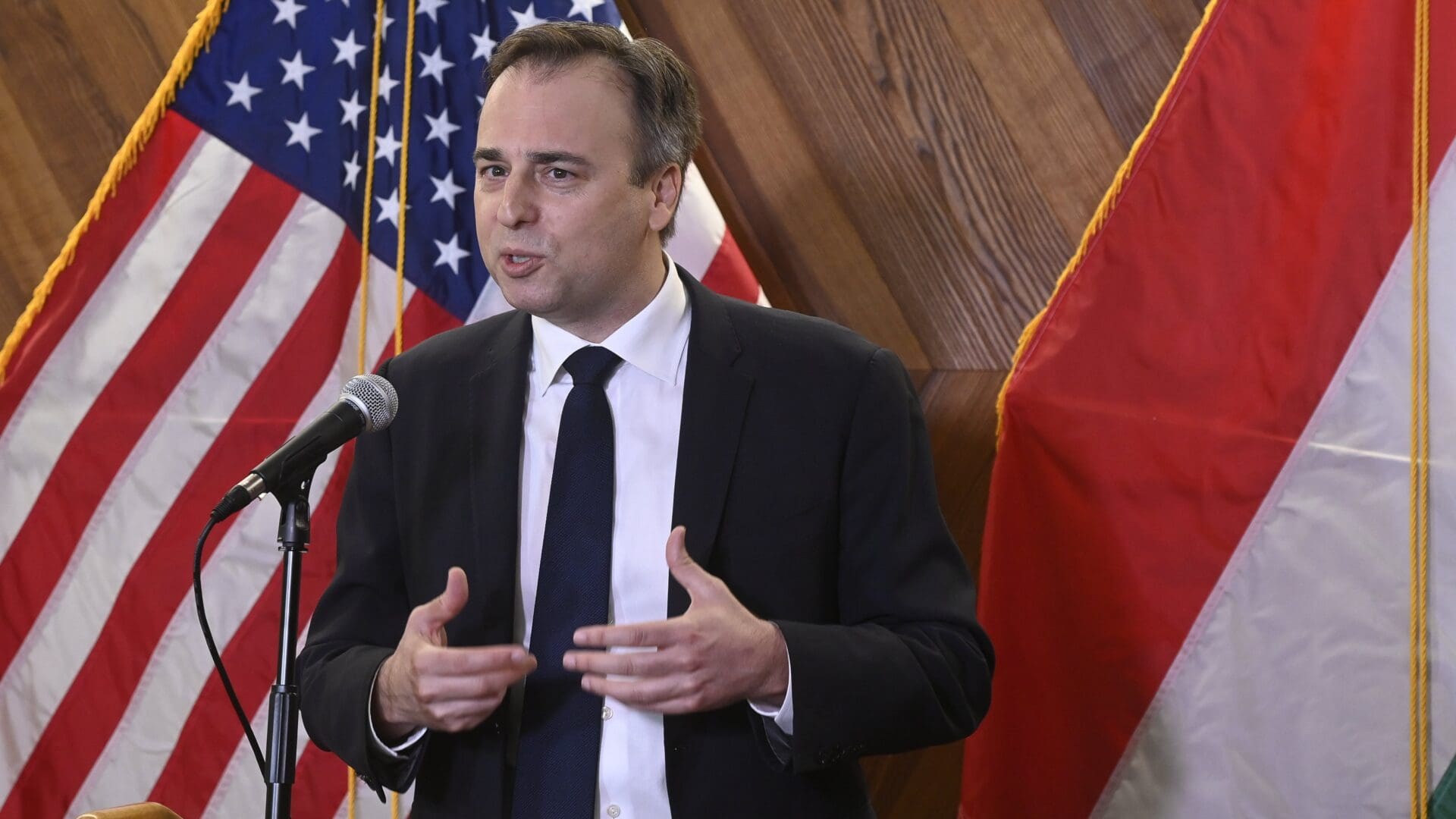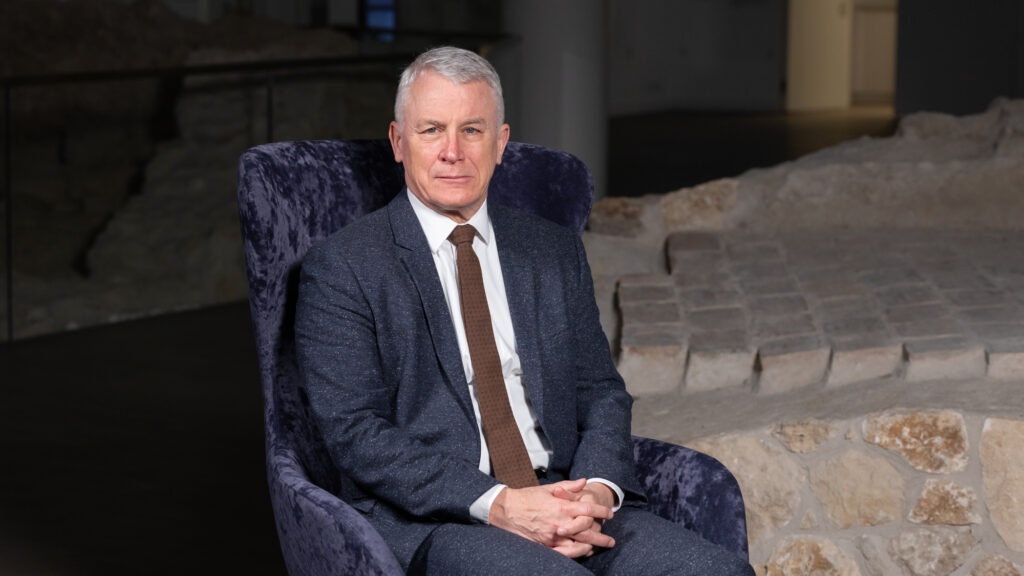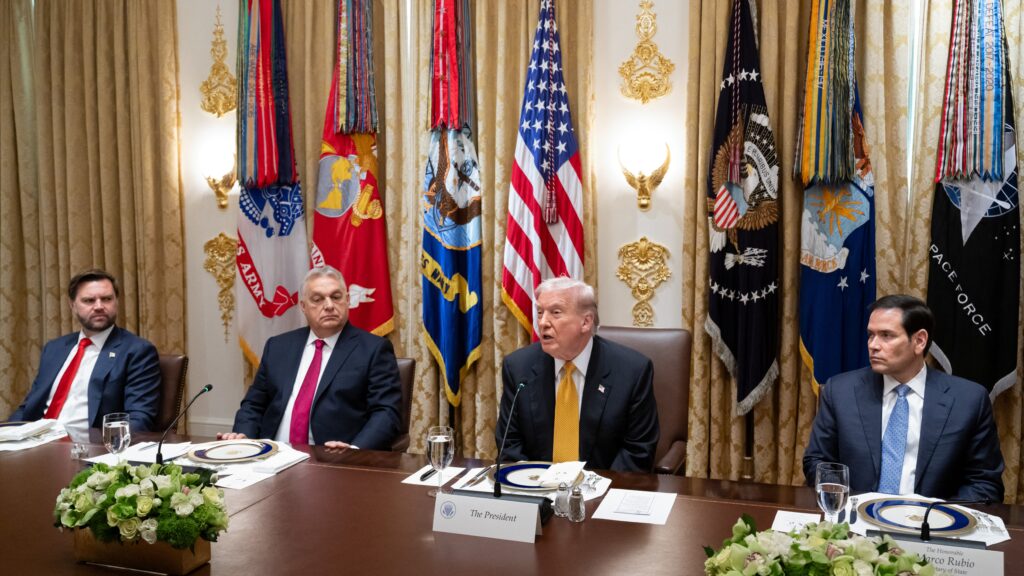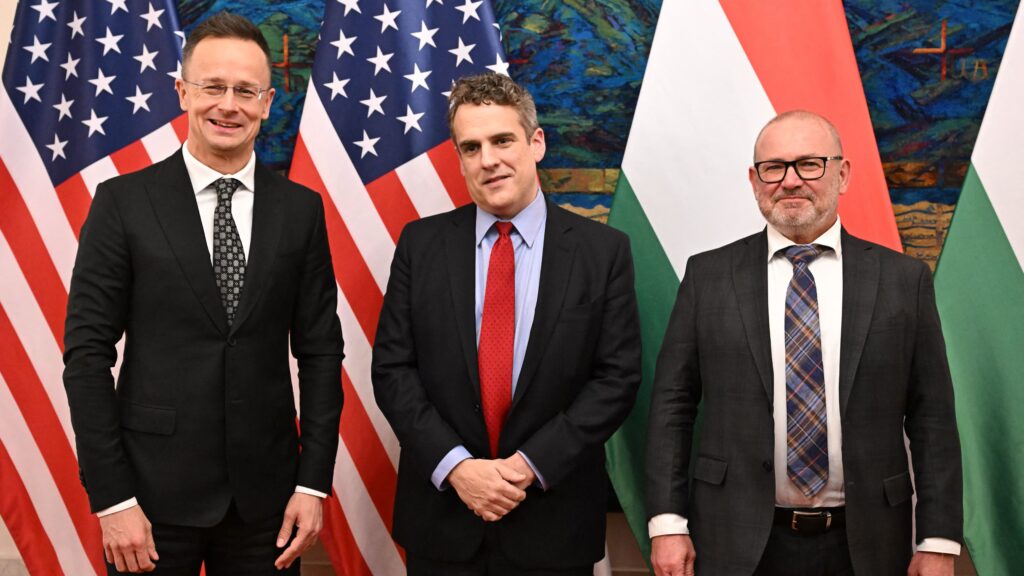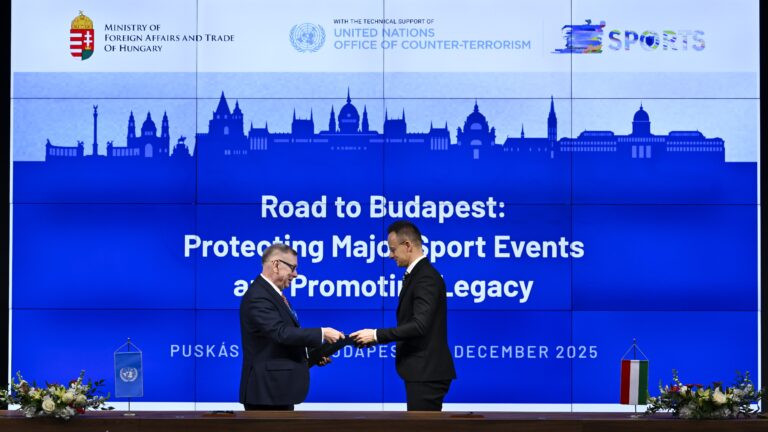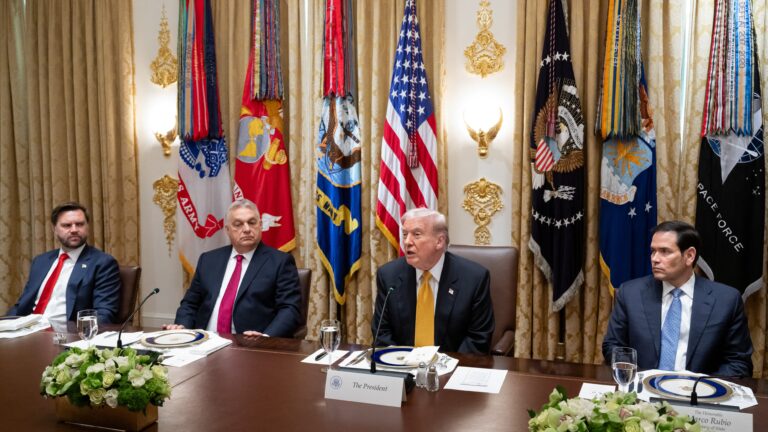Following Donald Trump’s victory yesterday, one might expect Democratic politicians to reflect on their shortcomings, acknowledge their mistakes, and, at least for a time, concede defeat. While most US ambassadors across Europe have taken this approach, US ambassador to Hungary David Pressman is, of course, an exception.
Pressman announced on his Facebook page on Wednesday afternoon that he would soon be speaking at the US Embassy. There was a glimmer of hope that he would refrain from unfairly criticizing and accusing the Hungarian government and Viktor Orbán; however, that hope was quickly dashed.
At the beginning of his speech, the diplomat stated that he had originally planned to speak at the closing of the US polls on Wednesday but was dissuaded by his staff. He then mentioned reading an article about how US embassies in other European countries were not holding their usual ceremonial events due to concerns that it would be ‘embarrassing’.
‘I thought to myself, well, I’m the United States Ambassador to Hungary, so I’m quite familiar with “awkwardness”. So here we are,’ he remarked. We must agree with Pressman on this point: most of his speeches and public appearances over the past three years have indeed been embarrassing, but that is not Hungary’s fault; it rests solely with him.
During his tenure, which is likely to end soon, the ambassador has done much to worsen US–Hungarian relations. Almost without exception, he has commented on every move made by the Hungarian PM in a lecturing tone, emphasizing how he believes the Hungarian government should have acted correctly. Whether it involved a trip abroad, a meeting with the European Union, or a change in legislation, Pressman consistently exceeded his remit, interfering in the internal affairs of the host country and adopting a pro-opposition stance.
‘During his tenure, which is likely to end soon, the ambassador has done much to worsen US–Hungarian relations’
He went on to state that Hungary and the United States share common values, referring back to the 35 years of Hungarian–American relations. He also recalled the time when Viktor Orbán met President George H W Bush and had a photograph taken with him in the same room where he was speaking. The ambassador continued by describing that era as one of hope and the promise of democracy, asserting that democracy is being celebrated tonight. He noted that when the invitation was sent out, they did not know who the new President of the United States would be, and that tonight’s focus is on celebrating democracy, rather than the victory of a particular presidential candidate.
Pressman emphasized, somewhat ironically, that he never comments on US partisan politics and that he does not engage in domestic politics because it is not in the interests of the United States. In doing so, he effectively acknowledged that his interference in Hungarian domestic politics served US interests, implying that supporting the Hungarian opposition was aligned with those interests, and thus suggesting that the US objective was to remove the Orbán government. One might ask, why do we need an enemy when we have such friends?
The US diplomat also highlighted that the election result will not alter the way he conducts his duties. He stated that he had not been accused of ‘not daring to speak clearly’ and assured that this would remain the case in the future. However, he acknowledged that the presidential election had brought about a significant change in Hungary’s relationship with the United States.
‘He effectively acknowledged that his interference in Hungarian domestic politics served US interests’
‘Prime Minister Orbán treated this election like a card game at a casino. And he placed a very big bet. Whether he believes that he won or lost this hand, he was gambling not with money but with the US–Hungary relationship. A relationship that has been altered by his gamesmanship. The damage caused runs deeper than a four-year term of a President, because it is rooted in an impulse to transform something big and lasting, a relationship between Allies—between strong nations—into something smaller and fleeting,’ David Pressman stated. He also remarked that it is not credible to assume that a new president can solve all problems.
‘But staking something big and permanent on something finite and temporary isn’t just risky. It’s reckless. And, win or lose the hand, it comes with a cost. It’s staking Hungary’s future on someone else’s election, putting Hungary’s fate in the hands of non-Hungarians. It is gambling with the alliance that secures your safety, like a stack of chips in a game of poker. But the chips this country’s leaders are playing with are not theirs alone,’ he added.
However, that is not the case. The Hungarian government did not ‘go all out’—as Pressman puts it—in this election because it wanted to; rather, it was compelled to do so by the Democratic administration, which offered no other option. The Biden administration could not tolerate an ally adopting a different stance on certain issues and refusing to surrender its sovereignty or bow to American influence. The Democratic administration responded to this with sanctions and unilateral punitive measures. It is not due to Budapest that Hungarian–American relations have reached their current low level, from which only Donald Trump’s presidency can restore them.
Pressman also criticized the Hungarian government’s diplomatic and foreign relations strategy, describing Hungary’s treatment of its allies as ‘grandiose smallness’. He concluded his speech by stating, ‘While our election will certainly change the United States, the Hungarian people should understand that it will not change Hungary. I recognize that American elections have implications beyond our borders, but they do not determine your destiny—you do. This is, fundamentally, what it means to be a democracy. It is essentially what unites our countries. And I hope that it always will.’
Pressman’s speech perfectly illustrates the arrogance with which the United States has treated Hungary over the past four years. However, that will end on 5 November. Under Donald Trump’s presidency, Hungarian–American relations can once again flourish. In the words of Fidesz Communications Director Tamás Menczer: ‘We bid you farewell, Ambassador Pressman; we will miss you.’
Update:
Interestingly, Bryan Leib, a Senior Fellow at the Budapest-based think tank Center for Fundamental Rights, reacted to Pressman's speech on X. Leib, who recently gave an interview to the Hungarian Conservative in which he accurately predicted that Donald Trump would win the presidential election by a landslide, saw his post quickly gain popularity, amassing nearly 40,000 views.
Bryan E. Leib on X (formerly Twitter): "Once again, activist David Pressman uses his post in #Budapest to rail against @PM_ViktorOrban with this unhinged rant. The Hungarian people and government can rest assured that whomever President-Elect Trump selects as his next Ambassador to Hungary will be the polar opposite of... https://t.co/N5Bdmc5kvR pic.twitter.com/cxJH8KDxR8 / X"
Once again, activist David Pressman uses his post in #Budapest to rail against @PM_ViktorOrban with this unhinged rant. The Hungarian people and government can rest assured that whomever President-Elect Trump selects as his next Ambassador to Hungary will be the polar opposite of... https://t.co/N5Bdmc5kvR pic.twitter.com/cxJH8KDxR8
Related articles:

